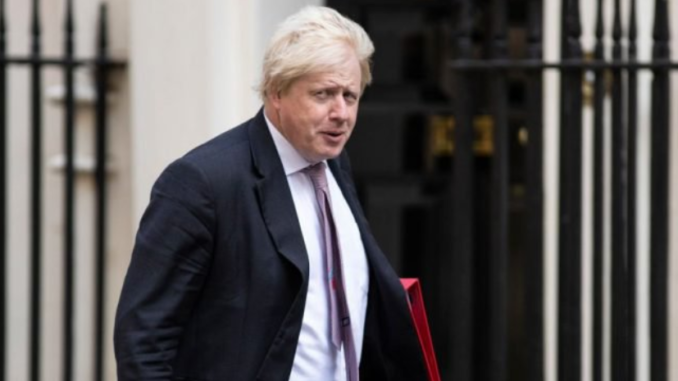
British Prime Minister Boris Johnson has written to European Commission President, Jean-Claude Juncker, outlining proposals that could lead to a revised divorce deal between London and Brussels.
Here are five key points in Johnson’s plan, which revolves around arrangements on the border between Northern Ireland — part of the United Kingdom — and EU member the Republic of Ireland.
– Removing the backstop –
The existing divorce deal between Britain and the EU has been rejected three times by British MPs. The only split scenario supported by a majority involved removing the backstop fallback provisions concerning the Irish border.
The backstop would ensure the Irish border stays open by keeping the whole UK temporarily aligned to EU customs rules.
Johnson’s letter said the backstop was intended as bridge to a future partnership in which Britain remained closely integrated with EU customs arrangements and laws, but as that is not where his government wants to go, the backstop is a “bridge to nowhere”.
– NI to keep EU goods regulations –
The plan provides for the creation of an “all-island regulatory zone” on the island of Ireland covering all goods including agrifood. This means Northern Ireland sticking with EU goods regulations to ensure they are the same on both sides of the border.
The move would eliminate “all regulatory checks to trade in goods” across the border.
To support the province through the transition, London would launch a “new deal” for Northern Ireland, with commitments to help boost economic growth, competitiveness, and infrastructure projects.
– NI consent –
The plan would mean Northern Ireland having significant sectors of its economy governed by laws which it has no say in making.
The plan proposes that the Northern Ireland Assembly and its executive — the province’s devolved regional government — should have the chance to endorse the arrangements before they enter force.
They would do so during the transition period and for every four years afterwards, otherwise the arrangement lapses.
The arrangements, therefore, could not be maintained indefinitely if they were not wanted — a key problem British MPs had with the backstop.
The assembly collapsed in January 2017 due to a breakdown in trust between the main parties representing the British and Irish communities.
– NI fully in UK customs territory –
The letter says it is “fundamental” that the UK leaves the EU customs union “whole and entire” at the end of the transition period.
It said Britain had to have control of its trade policy in future.
– Electronic customs –
Both sides should commit never to conduct checks at the border. The UK says it will never impose a hard border on its only land frontier.
All customs processes needed to ensure compliance with the EU and UK customs regimes should take place “on a decentralised basis”, with paperwork conducted electronically as goods move between the UK and Ireland.
It said a very small number of physical checks would need to be conducted at traders’ premises and other points on the supply chain.
(AFP)
END

Be the first to comment